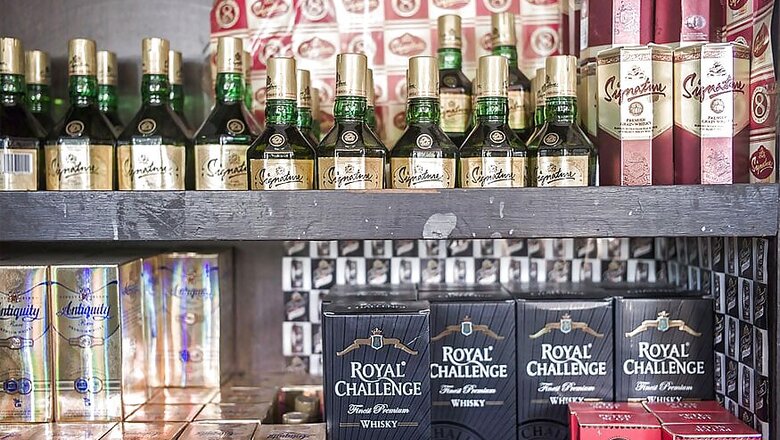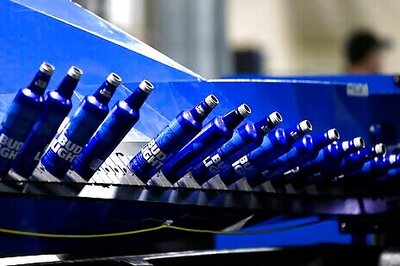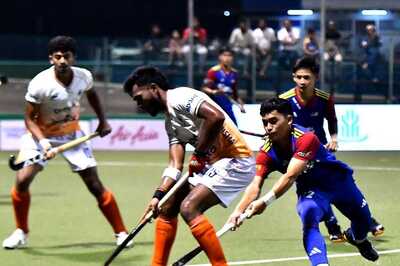
views
New Delhi: In a landmark decision, the Supreme Court on Thursday directed to close liquor shops on national and state highways to curb accidents and the menace of alcoholism.
A three-judge bench headed by Chief Justice T S Thakur also directed that all signages indicating presence of liquor vends will be prohibited on national and state highways.
The bench also comprising Justices D Y Chandrachud and L Nageswara Rao said the existing licenses of liquor shops across the highways will not be renewed after March 31, 2017.
Last week, the apex court had expressed concern over 1.5 lakh fatalities every year in road mishaps, saying it may direct closure of liquor vends on national and state highways across the nation, besides removal of the signages indicating their location.
The apex court, while reserving verdict on December 7 on a batch of pleas seeking a direction to amend excise laws to ensure that no liquor is sold alongside highways, came down heavily on the Punjab government for seeking relaxation and permitting liquor shops near highways if they are "elevated" ones and the vend are under or near it.
"Look at the number of licences you (Punjab) have given. Because the liquor lobby is so powerful, everyone is happy. The excise department is happy, the excise minister is happy and the state government is also happy that they are making money. If a person dies due to this, you give Rs one or 1.5 lakh. That is it. You should take a stand which is helpful for the society," the bench had said.
Reminding the state government of its constitutional obligation to prohibit liquor sale, the bench had asked the state to do something for general public considering that nearly 1.5 lakh people were dying every year.
The bench had also expressed unhappiness over alleged inaction by various states in removing liquor shops alongside roads which give rise to drunken driving and consequential fatalities.
It had said that revenue generation cannot be a "valid reason" for a state or a Union territory to give licence for liquor shops on highways and the authorities should adopt a positive attitude to remove the menace.
The bench had also rapped the Centre for not doing anything concrete for the last 10 years forcing the court to "step in".
Earlier, the court had sought a response from the Centre, states and Union territories on the pleas seeking a direction to amend excise laws to ensure that no liquor is sold alongside highways.
Several pleas have been filed on the issue including the one which referred to the 2015 report of the Ministry of Road Transport and Highways and said almost five lakh accidents occurred last year in India, killing 1,46,000 people and leaving thrice the number injured.
It was alleged that despite recommendation of a committee to ban of sale of alcohol on state and national highways, states like Andhra Pradesh and Telangana were sticking to their prevailing excise policies under which licences were being issued to liquor shops along the highways.
"An analysis of road accident data 2015 reveals that around 1,374 accidents and 400 deaths take place every day on Indian roads, resulting in 57 accidents and loss of 17 lives on an average every hour.
"India being a signatory to the Brasilia Declaration, it is imperative that policy guidelines are framed to control road accidents. Also, the excise policies of Indian states and Union territories should be amended to conform to the spirit of Article 47 r/w Article 21 of the Constitution of India," one of the pleas had said.
Announcing a raft of measures to deal with public drinking, the Delhi government has also enforced the Excise Act under which consuming alcohol at public places will attract a fine of Rs 5,000 and if the offender creates nuisance than the fine will be upto Rs 10,000 with a jail term of three months.
The Delhi government has announced that no new liquor shop with government license would be opened in the capital. The government has also said that if residents face problems with liquor shops in their area, they should give a written complaint with the signature of at least 10 per cent voters of that particular area.
Earlier, Bihar Chief Minister Nitish Kumar had imposed a blanket ban on sale and consumption of all types of liquor. However, the Patna High Court, on September 30, had quashed the April 5 notification of the state government banning consumption and sale of alcohol in the state, saying it is ultra vires of the Constitution.
- With PTI inputs



















Comments
0 comment